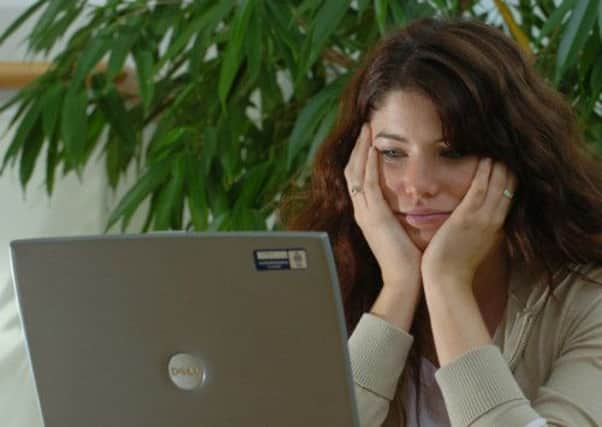Internet cures leave patients ‘chasing false hope’


The charity Science About Science said many people were bombarded with unsubstantiated claims about pioneering cancer treatments, new diets and unfounded stem cell cures, leaving them “chasing false hope”.
Their new guide, produced with medical charities, aims to help people weigh up claims about the “miracle cures” they see on the web and in adverts to avoid serious harm to their health, as well as the financial and emotional costs.
Advertisement
Hide AdAdvertisement
Hide AdSense About Science said that people with serious conditions, such as cancer, multiple sclerosis, motor neurone disease, autism, epilepsy, and Alzheimer’s, could be desperately seeking anything that might help them and were especially vulnerable to exploitation.
But the guide – I’ve got nothing to lose by trying it – highlights the consequences suffered by such patients – including their condition becoming worse, being exposed to the risk of infection from unscreened stem cell treatments and the huge financial costs.
Some of the treatments cost tens of thousands of pounds, running into hundreds of thousands if they involve costly trips to private clinics abroad.
Christine, a thyroid patient who is quoted in the guide, said: “After a saliva test an ‘alternative thyroid doctor’ gave me ‘adrenal glandular’ tablets and told me to reduce my prescribed thyroid medication. I was in a lot of pain, bed-bound for weeks and it cost me a whole year out of my life – not to mention the huge costs of paid carers and useless and misleading saliva tests.
“My advice is not to make my mistake of trusting anyone outside the medical profession.”
Anne-Louise Crocker, who has two children with autism, said: “Since my older daughter was diagnosed ten years ago. I’ve been urged to try all manner of ‘miracle cures’ from chelation to oxygen chambers, from exclusion diets to injections of pig hormones.
“Many parents will try them on the ‘what harm can it do?’ principle – though some can be harmful.”
Tracey Brown, managing director of Sense About Science, said: “If a claim about a treatment sounds too good to be true, it probably is.
Advertisement
Hide AdAdvertisement
Hide Ad“Families and friends can help loved-ones to ask questions and avoid exploitation.”
Dr Emma Gray, from the MS Society, said: “Making decisions about what treatment to take can be difficult for people with MS – there’s so much information out there, it can be hard to know what to trust and believe.
“I would encourage anyone considering a new treatment to examine the evidence and then talk this through with a healthcare professional.”
Julia Wilson, director of research at Breakthrough Breast Cancer, added: “There’s a lot of health information out there, but not all of it useful, helpful or safe, so this unique guide will navigate patients and their families through the wealth of complimentary therapies.”
Dr Margaret McCartney, a GP in Glasgow, said: “Breakthroughs are rare, and false hope, hype and overselling of unproven or uncertain treatments are everywhere. As a GP I see the harm this does. It is incredibly unfair.”